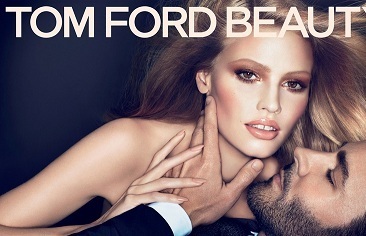The Male Gaze – Laura Mulvey – Feminist Theory
Visual Pleasure and Narrative Cinema – Written in 1975
The cinema apparatus of Hollywood cinema puts the audience in a masculine subject position with the woman on the screen seen as an object of desire. Film and cinematography are structures upon ideas. Protagonists tended to be men. Mulvey suggests two distinct modes of male gaze – “voyeuristic (women as whores) and fetishistic – women as unreachable madonnas”. (Also narcissistic – women watching film see themselves reflected on the screen). (Film texts: Alien, Jackie Brown).
People who criticise her ideas say that she is ignoring the fact that all genders – male and female want to feel dominated and overwhelmed by the cinema experience. Also, she ignores the fact that men are capable of ‘metaphoric transvestism’ whereby they are able to view the film from the perspective of a woman. (Thelma and Louise, The Piano, Knocked Up, Brick Lane).
Scoop.it
Creative Advertising Techniques
Advertising is a form of communication used to encourage or persuade an audience (viewers, readers or listeners; sometimes a specific group of people) to continue or take some new action.Read more...
Means-End Theory
This approach suggests that an advertisement should contain a message or means that leads the consumer to a desired end state.
This approach suggests that an advertisement should contain a message or means that leads the consumer to a desired end state.
Cultivation Theory
Unlike social cognitive and priming effects, the cultivation effects analysed by American communications George Gerbner are honed through much longer exposure to the media. Gerbner and his colleagues carried out longitudinal surveys of people’s opinions on certain subjects- the key variable being how much TV they watched. Variations in opinions held by those who watched lots of TV compared with those who did not were measured to compare the ‘cultivation differential’. In practice, this means that those viewers who watch lots of TV are found to have different opinions about the world outside of t heir front doors than those who watch less TV. So TV cultivates the opinions of people who watch several hours of it each day, every day.
KECA2MEDIABLOG
Lacan – Psychoanalysis and ‘The Mirror’
Unlike social cognitive and priming effects, the cultivation effects analysed by American communications George Gerbner are honed through much longer exposure to the media. Gerbner and his colleagues carried out longitudinal surveys of people’s opinions on certain subjects- the key variable being how much TV they watched. Variations in opinions held by those who watched lots of TV compared with those who did not were measured to compare the ‘cultivation differential’. In practice, this means that those viewers who watch lots of TV are found to have different opinions about the world outside of t heir front doors than those who watch less TV. So TV cultivates the opinions of people who watch several hours of it each day, every day.

No comments:
Post a Comment